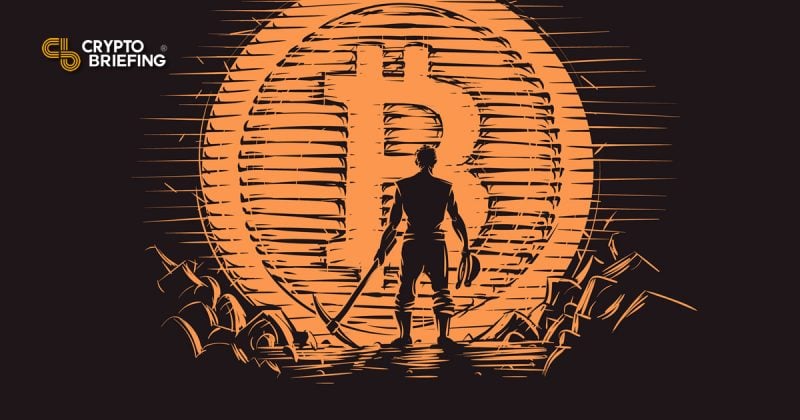
Far From Capitulation, Bitcoin Miners Are Buckling up for Tough Times
Despite the latest market rout, many large mining pools are hoarding coins, upping hardware, and waiting patiently for the first bull sighting.
Rumors that Bitcoin miners are ready to throw in the towel have been making the rounds in the cryptocurrency world. But how accurate are these claims?
Seasoned Bitcoin Miners Loyal to the Network
The crypto space has been hard debating whether Bitcoin miners will soon capitulate. This debate, however, fails to make a distinction between large and small mining farms.
Such a distinction is critical, especially for investors with deep pockets.
A mining farm is an entity that runs the mining hardware and servers necessary to validate transactions on the Bitcoin network and reap the rewards of mining.
But this reward is not theirs alone.
Mining farms often sell hash rate contracts to both individual and institutional investors. The capital raised from selling these contracts secures a farm’s commitment to mining and gives large mining farms cash flow to operate.
Contracts are helpful when the price of Bitcoin is low and miners produce coins either at a loss or for only a small reward.
The burden of operating and capital expenses is then shared between those who bought the contracts and Bitcoin miners. Everyone who has pitched in to meet costs also gets a slice of the profits.
It is through the purchase of contracts that institutional investors, for example, can support mining farms during bear markets. Naturally, this demographic is more likely to invest in larger farms. This is because these farms have a greater chance of earning Bitcoin’s miner reward.
Larger farms tend to be well-capitalized and better prepared to ride out a volatile crypto market. The same cannot be said for independent pools and hobbyist miners.
Smaller mining farms will fare the worst during poor market conditions. They lack the financial backing of hash rate contracts and institutional capital.
Sustained prices below the cost of production can even push them to capitulate and shut down shop.
The Effect of Price Dynamics on Miners
Comparing Bitcoin miners to oil exploration companies is a helpful metaphor to understand what miners do, which is provide a useful service while speculating on the price of an asset.
Just as oil giants like Saudi Arabia and Russia are increasing their oil production despite prices plummeting, Bitcoin miners are doubling down on their business efforts.
Kristy-Leigh Minehan, an independent consultant to mining farms, told Crypto Briefing, that contrary to popular belief, demand for mining hardware is outpacing supply as miners attempt to double down and take advantage of market conditions.
Miners don’t disclose their buy-sell strategies.
Instead, during corrections, they hoard as many coins as they can with the intention of selling once the market recovers. Minehan said that many follow the “mine low, sell high” strategy.
While smaller players will take some of their hardware offline before getting shaken out, larger mining farms will attempt to weather the storm, possibly acquiring smaller farms for their resources.
Extreme Conditions Could Lead to Capitulation
If the price of Bitcoin recovered today, all would be well for miners – small and large.
Bitcoin’s close correlation to stocks and broader bear markets, however, makes this outcome look unlikely.
“Institutions have committed to run their operations for multiple years in order to land advantageous power contracts – many are already in place today. We will continue to see bigger mining farms accrue more market share, and the Bitcoin mining industry will continue to slowly coalesce around a handful of institutional-grade contributors and alternative asset investors,” said Minehan.
Although they may have planned for many operational years, extreme events, like the coronavirus pandemic, could ruin these plans. Minehan said that in such events even larger farms would be forced to re-evaluate their strategies.
An increase in utility prices and adverse economic conditions can threaten the energy contracts farms have in place. For now, though, Bitcoin miners look ready to ride out this upheaval.
Still, anything can happen in the volatile world of cryptocurrencies.
